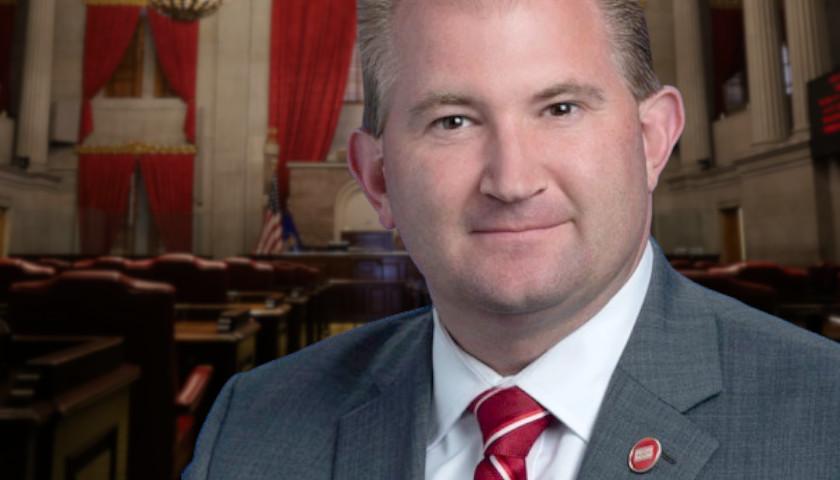Live from Music Row, Thursday morning on The Tennessee Star Report with Michael Patrick Leahy – broadcast on Nashville’s Talk Radio 98.3 and 1510 WLAC weekdays from 5:00 a.m. to 8:00 a.m. – host Leahy welcomed Nashville attorney of 36 years John Harris in-studio to discuss whether he would consider applying for Tennessee attorney general, and the process in which the AG is selected.
Leahy: Now it’s time for the big question, folks, for John Harris, an attorney here, Vanderbilt Law School graduate, been practicing law for what, 30 years?
Harris: Thirty-six years now in Nashville.
Leahy: Thirty-six years! Practices law in Tennessee, an attorney in Tennessee, well known in legal circles, and the founder of the Tennessee Firearms Association.
John, we’ve been talking, you and I, about the role of the attorney general in Tennessee and because of the way it’s been selected – the only state of the union where the Supreme Court picks the Tennessee Attorney General.
The practice has been a sort of rubber stamp of the governor’s pick with the Tennessee General Assembly having no say in the selection of the attorney general.
However, as you pointed out, they hold the budget strings and the authority, and they could easily, if they don’t like the attorney general, could create a new job and transfer all the authority to file lawsuits against the federal government to that job, like you called it, the solicitor general.
Harris: Solicitor general. And as a matter of fact, with the Republican supermajority, they should have done that 10 years ago.
Leahy: Amen, brother. And could have done it, and we would have had a more aggressive attorney general. Having said that, Herb Slatery’s last months, I would say most of his wins have come in his last months.
Harris: I would say so, yeah. And most of those wins have his name on it. But it’s the hard work of staff attorneys to take up the issues, but still under his umbrella.
Leahy: It’s an eight-year term. He was picked. He was basically rubber-stamped by the Supreme Court. We’ve been critics of the Supreme Court’s lack of transparency on this, and generally speaking, the Supreme Court has made good judicial decisions. In my view, pretty good.
All five of them are up for retention election here. We’re going to talk on Tuesday because we have an expert coming in on who should be retained and who shouldn’t.
That’ll be interesting. Likely they’ll all be retained. It’s just a question of what the margin is. But here’s the thing, we’ve been reporting constantly about the lack of transparency in the Supreme Court in this process.
Last time, they allowed attorneys to apply, didn’t tell anybody who applied, and then just came out with eight finalists and held perfunctory hearings.
And it was basically a rubber stamp of Herb Slatery in 2014. We’ve written, I don’t know, three dozen articles about this, right? We’ve had many shows.
And I think the folks at the Supreme Court are listening, because, John, the deadline to apply is tomorrow at noon. Tomorrow at noon, about 24, 27 hours from now is the deadline to apply for this job of attorney general, which is a very powerful job.
You can do a lot of good for the country and the state, in particular, to defend our Tenth Amendment rights. They haven’t announced it, but we know that they will.
For the first time in the history of Tennessee, I think because of our reporting, they will identify the names of everybody who’s applied for this job tomorrow. I think it’s fantastic. And I say thank you, Supreme Court of Tennessee, for doing that. It’s a good move.
Harris: It is. They should have been doing that for decades.
Leahy: Okay, the big question now, are you ready for it? John, you’ve written a couple of chapters of the Star News Digital Media Guide to the Constitution and Bill of Rights for Secondary School Students on the Second Amendment and the Fourteenth Amendment.
Did a great job on that. You’ve practiced law in Tennessee for 36 years. You are qualified to apply for the job of attorney general here in the state of Tennessee. Though the clock is ticking, John Harris.
The clock is ticking. I personally think you would be a fantastic attorney general, and you have until noon tomorrow to apply. I think you just go online and just say, I’d like to be attorney general.
So I’m going to ask you to consider something, John. Will you consider over the next few hours of today applying to be the attorney general of the State of Tennessee?
Harris: Well, I will commit to that. I’ll look at the process of application and see what’s involved.
Leahy: You’ll look at the process.
Harris: I’ll look at the process. I would say, though, since it’s been predominantly, and I think this time it likely will be a rubber stamp of whatever Lee wants.
Leahy: Hold on, hold on. We are working hard to change that, and I think there are political pressures that could change that. We’ve already seen it’s not going to be a rubber stamp in this regard because they are going to put the names of the candidates out there.
Harris: Correct.
Leahy: I’m talking to everybody in the Tennessee General Assembly. They don’t like this idea of it being a rubber stamp, especially if the nominee is this Brandon Gibson person who is a left-wing, basically, person, the left-wing judge. She was an appellate judge. Her decisions were not that good.
Harris: No. She’d be the Penny Schwinn in the AG.
Leahy: She’d be the Penny Schwinn of the AG office. She’s currently the Chief Operating Officer of the state. Governor Lee is said to want her but wants her as the attorney general nominee.
However, we’re told that she doesn’t like being criticized in public, and we’ve been criticizing her and we’ve asked her for comments. She won’t comment. We’re told that she may not apply. We don’t know. We’ll find out tomorrow at noon.
Harris: Yes.
Leahy: But I don’t think it’s going to be a rubber stamp this time. I think you might have a shot, John.
Harris: If it’s not a rubber stamp, I would be excited about that, because we need a strong AG. But more importantly, what we need is for the process to change, because constitutionally, the AG is essentially a clerk for the court. And all the other powers that they have, like representing the state and federal litigation, are created by statute.
Leahy: The Tennessee General Assembly could change that statute and set up a new job and have all the duties of the attorney general put in that new job, the solicitor general idea you suggested.
Harris: Exactly. And I’d love to hear responses from people like Beth Harwell and Jack Johnson and others that are incumbents running, claiming they’re the conservatives, as to why they haven’t dealt with this in the last decade.
Leahy: I think we’ll get Jack. He listens to our program and we’ll ask Jack that question. My sense is he’s kind of leaning in your direction.
Harris: I would hope so.
Leahy: Every member of the Tennessee General Assembly that talked to me is unhappy with the good old boy network, the insider process by which in the past, the attorney general application has been sort of rubber-stamped.
Harris: You know, when Senator Beavers was up there, who not only said she was a true conservative but acted like it, which is an anomaly in our current General Assembly, she actually filed bills to make it an elected attorney general.
Leahy: Let me just go to that point. People talk about that. Let’s be like the other 43 states and have direct elections. I don’t think that’s ever going to happen in the state of Tennessee. You’ve talked about this before. We’ve got a very powerful sort of Tennessee bar, if you will.
Harris: Right, we do.
Leahy: And so what that means is they like it. They like having it sort of, the insiders getting this and not accountable to the people. And by the way, that’s not going to be relevant to the pick of the next attorney general who’s getting an eight-year term.
That’s happening right now because August 31st is the last day of Herb Slatery in that office. There’s going to be somebody else there on September 1st. I would like to see that somebody else possibly being John Harris.
Harris: Well, I appreciate that. Like I said, I’ll look into it. (Leahy laughs) But keep in mind, the safety valve is that although it’s an eight-year term, that’s an eight-year term for the constitutionally delegated function. And all of these other duties like representing the state in litigation could change come January 2023.
Listen to the interview:
– – –
Tune in weekdays from 5:00 – 8:00 a.m. to The Tennessee Star Report with Michael Patrick Leahy on Talk Radio 98.3 FM WLAC 1510. Listen online at iHeart Radio.





